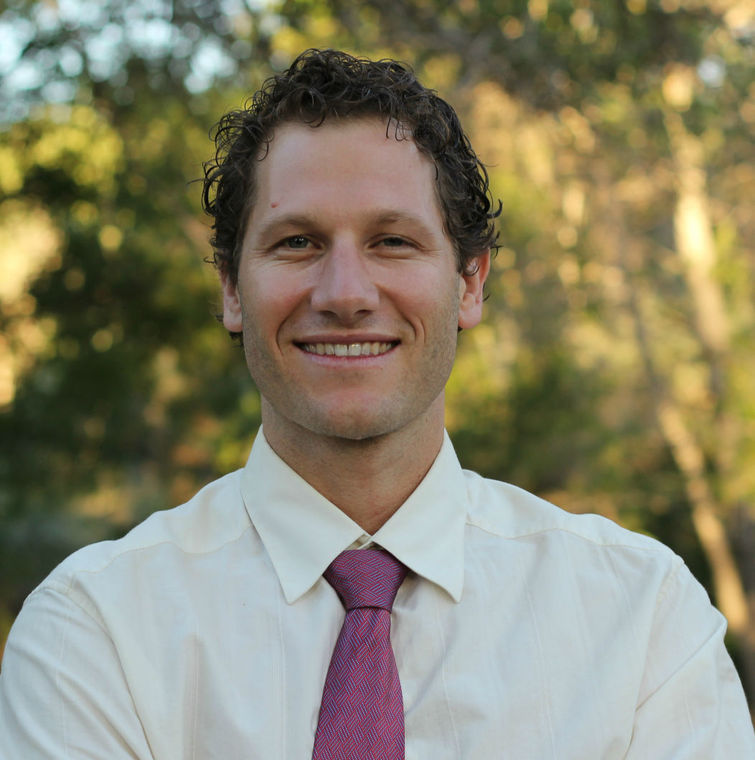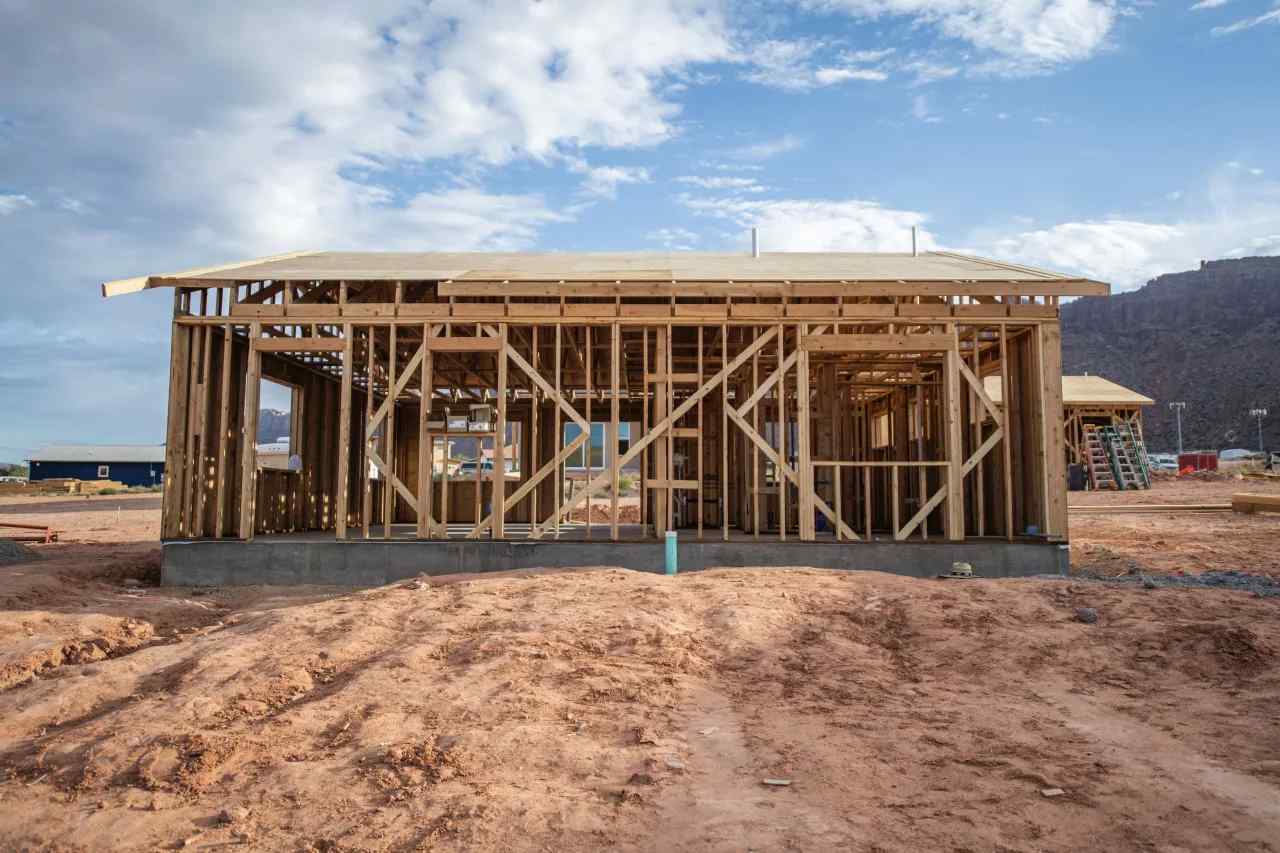Bed-and-breakfast accommodations are relatively few and far between in Grand County’s unincorporated areas, and county officials are eyeing a plan to keep them from proliferating in the future.
The Grand County Council is reviewing proposed changes to the county’s land-use code that are designed to prevent the overcommercialization of residential neighborhoods beyond Moab’s city limits. County officials came up with the proposal partly in response to local residents’ concerns about the potential impacts that more and more visitor accommodations could have on their streets.
“The goal of this is to preserve some neighborhood integrity,” Grand County Community Development Director Zacharia Levine told the council during its regular meeting on Tuesday, Aug. 2.
If enacted, the changes would not affect existing B&B operations, but one major change would create a 300-foot buffer between new B&B accommodations. In other words, once a bed-and-breakfast is established, another one cannot be established within 300 feet of other B&B buildings.
Right now, Levine estimates that there are only 12 to 15 bed-and-breakfasts in the county, and while reports of related impacts are minimal, he suggested that the demand for more visitor accommodations could change that.
“It’s very conceivable that given the profit potential associated with them, you could end up with a neighborhood block that’s all bed-and-breakfasts,” Levine said. “And you can imagine the negative impacts that would have on an established neighborhood.”
While the Grand County Planning Commission voted to recommend approval of the proposed changes, support for the buffer idea is not necessarily unanimous among council members.
“Wouldn’t we want to keep the bed-and-breakfasts in … one area instead of spreading them out 300 feet?” Grand County Council member Rory Paxman asked. “I don’t understand how that works.”
Council member Jaylyn Hawks said that as long as bed-and-breakfast owners are complying with other regulations that the county throws at them, she “kind of” agrees with Paxman.
“If I want to open one next door to Rory and he’s already got one, and there’s not 300 feet, I think that’s probably my right to do so,” she said.
Hawks pointed to Cedar City as just one example of a place where B&Bs operate in quiet and peaceful neighborhoods. But Grand County Council chair Elizabeth Tubbs said that visitor accommodations have the potential to create more impacts than single-family homes in those areas.
“If I have five bedrooms next door to me that are being rented out, that’s a potential for five different cars coming in and out all day long,” Tubbs said. “There’s a lot of traffic that’s generated, and noise and everything else, by somebody that’s renting a place, than by a family that’s living next door.”
In addition to the proposed buffer, the changes would give local officials the authority to review and approve each new B&B site plan to protect the health and safety of guests. Other provisions would expressly prohibit on-street B&B parking, and require a full-time B&B manager to live on-site.
If approved, county staffers could also develop a land-use permit application for B&Bs, which would give them “much more” oversight and enforcement capability, Levine said.
As it is, B&B owners only need business licenses to operate in the county, and Levine said it’s difficult to rescind them. Under the proposed changes, he said, county officials would gain the authority to revoke a B&B owner’s permit in the event that they violate the county’s land-use code.
Grand County Council member Chris Baird said that the proposal does not address one of the major concerns he’s heard from several different people.
If the county approves a business license for a B&B, yet the applicants wind up running a short-term Airbnb rental instead, Baird said that officials still don’t have any recourse to deal with them.
“It doesn’t appear to me that this ordinance is addressing that concern at all,” he said.
Public hearing draws mixed reactions from residents
Spanish Valley resident Kurt Schweitzer, who lives next to a highway commercial zone, said his family bought their property with the specific intent of operating a bed-and-breakfast at some point.
“We saw this and kind of freaked out,” he said.
For many local residents, he said, B&Bs are perhaps the only opportunity for small business capitalization. Other people bought properties in the county’s unincorporated areas, he said, specifically to have access to that permitted use, which is not confined to any particular zoning district.
Schweitzer said it appears to him that the county is willing to fine-tune the proposal, but even so, it strikes him as “a little far-reaching.”
“It seems like the overall purpose is to shut it down within residential areas, where people have already purchased property, knowing full well they could have a bed-and-breakfast next to them,” Schweitzer said.
Levine said the changes would not affect Schweitzer’s plans, as long as there are no other B&Bs inside the proposed buffer in his neighborhood.
“If there isn’t a bed-and-breakfast within 300 feet of your building in all directions, then you can do a bed-and-breakfast,” he said.
But Schweitzer foresees a situation where a B&B owner’s neighbors decide that they want to open their own bed-and-breakfast businesses, and in that instance, he said, nothing should prevent them from doing so.
“People are going to be like, ‘Hey, wow, they seem to be making pretty good money on that bed-and-breakfast. Why don’t we do that?’” he said. “People should have that right, if it’s already a permitted use under the zoning code.”
Spanish Valley resident Kevin Walker said it’s always hard for officials to get zoning regulations right the first time, simply because they cannot anticipate everything that will happen over the next 30 years.
“So you’re constantly tinkering with the zoning laws,” Walker said. “I think this argument that we can never change zoning because somebody might have bought (a property years ago) just doesn’t hold water with me.”
A 300-foot buffer is better than nothing, Walker said, but if he had his druthers, he would rather not allow B&Bs in residential neighborhoods at all.
Aspen, Colorado, is often held up as an example of the kind of place that Moab does not want to become. During a recent visit to the wealthy resort community, Walker said he found the short-term rental situation there to be “pretty crazy.”
“If I were a person living in that neighborhood, I wouldn’t like it at all,” he said. “Things haven’t … gotten that bad in Grand County, but we’re headed in that direction.”
Moab City Planning Commission member Wayne Hoskisson, who spoke in support of the proposal, noted that the City of Moab recently passed a similar law that requires B&B owners to reside on their properties.
“We did it because one of our biggest worries is actually preserving neighborhood residences,” he said.
“I think that if you buy a home in a residential neighborhood, you should not be expecting that it’s going to be commercialized to a large extent,” he added. “A buffer zone is one way we went about doing that.”
Proposal would set 300-foot buffer between buildings
It’s very conceivable that given the profit potential associated with them, you could end up with a neighborhood block that’s all bed-and-breakfasts … And you can imagine the negative impacts that would have on an established neighborhood.





